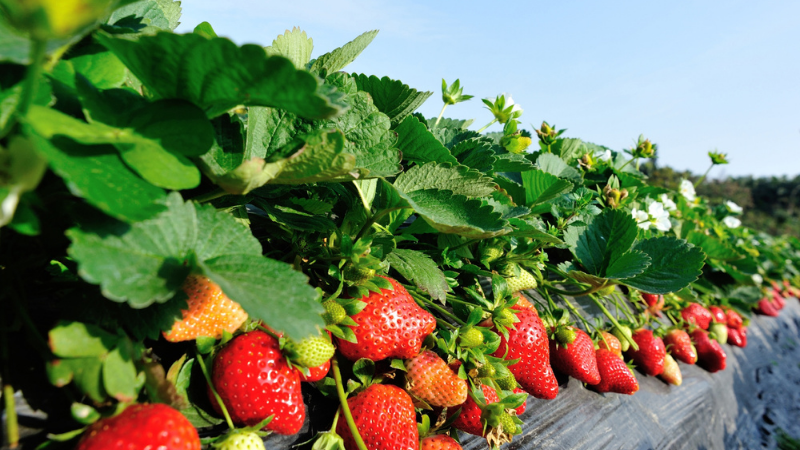Healthy Plant Nutrition Advice for Apple Growers
Knowing where to turn for good advice on plant nutrition has become a concern for the readers of American Fruit Grower. As one such grower stated in our 2023 State of the Industry survey:
“Finding talented advisers to serve regular growers is by far the biggest crop nutrition and crop protection issue. The experienced, educated experts are all being hired by the large corporate players. Crop protection companies are training new people each year, and they just don’t have the expertise to do the job. Further, they have no experienced folks on staff to train the new people.”
How should growers go about finding knowledgeable plant nutrition advisers? We posed that question to the crop nutrition suppliers themselves:
Rick de Jong, International Business Development Manager, Agro-K Corp
“Knowledgeable plant nutrition advisors are indeed in short supply. This does place more pressure on the grower to be better educated so as to meet their own needs. However, good plant nutrition advisors are out there; just don’t close any doors during your search. Evaluate both the independent consultants in your area but also those employed by your local fertilizer companies. One will find both qualified and not-so-qualified individuals from both walks of life.”
Steven Williams, Facility Manager, Hendersonville, NC, Nutrien Ag Solutions
“At our location, we are fortunate to have good nutritional training from Nutrien Ag Solutions as well as from industry experts, university research, and apple growers themselves. We are able to make recommendations from what we have learned. Most apple growing regions have good support from university research stations, such as North Carolina State and Cornell. Clemson University developed the MY IPM app that has insect and disease recommendations for apples, peaches, strawberries, and blackberries.”
Jason Haegele, North American Agronomy Lead, ICL Growing Solutions
“Undoubtedly, access to boots-on-the-ground knowledge will continue to be a challenge for growers. The super-competitive nature of the U.S. agricultural input industry, along with an explosion of start-up companies focused on biologicals and other new technologies, are creating an environment in which experienced, educated experts are in demand. However, these experts often find themselves supporting large geographic areas with limited time to provide the one-on-one attention that growers need. The plant nutrition industry is increasingly taking the lead, relative to industry, in providing research-backed recommendations.”
Larry Stauber, Technical Development Manager, Verdesian Life Sciences
“We always encourage growers to pursue multiple avenues of getting information. This can and should include university Extension, retail agronomists, industry agronomists, periodicals, and more. There are a lot of sources out there. Most retail agronomists have access to online libraries. We also have free and accessible information we’d love to share via our NUE University platform.”
Lorne Bienstock, Managing Partner, Agro-100 Global
“As a liquid nutrient and biostimulant developer and manufacturer, we understand the importance of providing the grower with much- needed information regarding input needs. Based on crop type, together with soil and leaf analysis, we can recommend the right product. Trust becomes an issue as the grower might perceive advice from a particular manufacturer as a sales push.”
Jon Treloar, Technical Agronomist, Novozymes BioAg
“The personal connection is so critical but not always easy to find. Look for someone who has a genuine interest in your operation and listens to the challenges; someone who looks for integrated solutions that will work on your farm. Unfortunately, oftentimes the advice comes from folks just looking to sell. Talk to other growers, look to university and government extension agents, and keep talking.”
Philip Kayal, Vice President of Operations/Business Development, Rogitex
“Yes, we have seen this, which is only compounding the problem. Small and medium-sized growers are experiencing a very tough challenge, without having the financial means to hire the proper experts to help them. We had identified this early on and have worked hard to open those doors for them and successfully remove those roadblocks.”
Abe Isaak, Agronomist, AgroLiquid
“Today we have many tools available to growers that we didn’t years ago. I have talked with many growers who have been advised to apply something, and they trust the adviser and go out and do it. The most important question a grower can ask is, “Why?” Why should I use this product over another product? Why should I devote so much of my fertilizer budget to a micronutrient? Why foliar applications vs. soil-applied? It is OK to make people defend what they advise. A basic understanding of crop nutrition will help you with your “Why” questions.”
Zack Ogles, Manager of Agronomy, Crop Vitality
“Obtaining sound crop nutrition advice is critical to a grower’s success. We provide expert advice through our team of agronomists located strategically across the country. In addition, we have a research farm located in Dinuba, CA, to allow our team to research and provide answers to questions that are relevant to our customers and markets”
Jose Muro, Agricultural Engineer, CCA, Locus AG
“Although crop protection companies can be an excellent source of nutritional advice, agricultural supply companies can be another beneficial source. Many often have highly respected experts on the team. At Locus Agriculture, we have a team of experienced agronomists dedicated to researching all elements of our biological inputs and their impact on the plant.”
Kevin Johnson, Owner, Microbial Science Laboratories
“Talk to microbiologists. Every large university has crop specialists. Take advantage of them. We are paying for them.”










